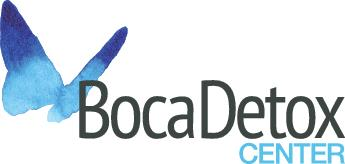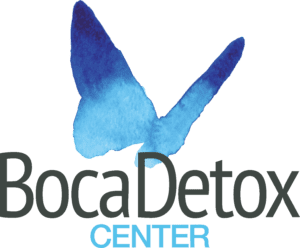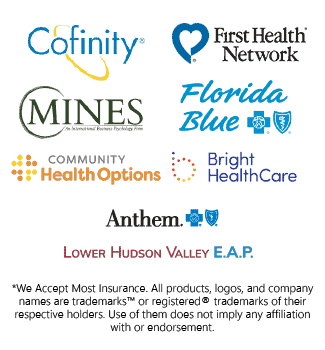Local addiction treatment offers several advantages, including easier access to the support of loved ones and reduced travel time and costs. Those attending outpatient programs also have the ability to continue working or attending school while receiving treatment. Additionally, local treatment centers often have close ties to community support and resources and can personalize their outpatient and aftercare programs accordingly. Highly customized programs in familiar locations may be more likely to result in successful outcomes.
At Boca Detox Center, we understand the importance of receiving addiction treatment close to home. Not only does it provide a sense of comfort and familiarity, but it also allows for greater involvement from loved ones in the recovery process. We offer inpatient medical detox to those dependent on a wide variety of substances, including alcohol, opioids, stimulants, depressants, and hallucinogens. Contact us today to learn more about our detox services and how we can connect you with additional effective levels of care.
Reduced Barriers to Accessing Addiction Treatment
Reduced barriers to accessing addiction treatment, such as increased availability of affordable and accessible detox programs, can improve the chance of successful recovery and reduce the risk of relapse and overdose. Local addiction treatment may be more likely to provide or help locate support for entire families, in addition to transportation, childcare, and financial assistance. This can lead to an overall reduction in the social and economic costs associated with addiction.
Local programs can also reduce treatment barriers by providing education and access to nearby resources and community outreach efforts of which individuals may not be aware. This can be extremely beneficial for those who lack social support from friends or family, so they can be encouraged by others who understand their situation and can be trusted to help.
Benefits of Being Close to Home With a Support Network
Being close to home while in addiction treatment can provide emotional support from family and friends, which can be crucial to the recovery process. Having access to a support network can help individuals feel less isolated and more motivated to continue with their treatment. Also, undergoing treatment can be a challenging experience, and being in a familiar environment and close to a support network can help reduce stress. Individuals often feel more comfortable and relaxed knowing there are loved ones nearby who can offer assistance and support.
Finally, research has shown that having a healthy support network during addiction treatment can lead to better treatment outcomes. (1) When family and friends are nearby and invested in a loved one’s recovery, they may be more likely to adhere to their treatment plan and maintain long-term sobriety.
Local addiction treatment can be a helpful and cost-effective option for individuals and families who may not have the financial resources to cover the costs of traveling to long distance rehab programs. By providing local and affordable options, more families can access the support they need to overcome addiction.
The Role of Family & Community Support in Addiction Recovery
In addiction recovery, family and community support can provide encouragement, accountability, and emotional and practical assistance, which can help individuals stay committed to their sobriety goals. Additionally, having a strong support system can reduce the feelings of loneliness often associated with recovery and offer an understanding environment for them to process any challenges they may face. However, it’s important for individuals in recovery to communicate their needs and boundaries with their support system to ensure they receive the appropriate level of help.
Having a sense of community and belonging can significantly help in the healing process for individuals struggling with addiction. Local treatment programs that prioritize creating a supportive and inclusive environment can help foster this sense of community and facilitate access to a wide range of resources and services that can support individuals throughout their recovery.
Access to Aftercare Services & Ongoing Support
Aftercare services and ongoing support are essential for individuals in recovery. These services can include counseling, therapy, peer support groups, medical care, and medication-assisted treatment. (2) By having access to these resources, individuals can continue to receive the help they need to prevent relapse, maintain their sobriety, and improve their overall well-being.
For example, support groups such as Alcoholics Anonymous (AA) and Narcotics Anonymous (NA) provide individuals with ongoing peer support and encouragement. (3) These groups typically meet regularly and offer a safe space for individuals to share their struggles and successes in recovery.
Outpatient therapy can also be extremely beneficial, as it allows individuals to continue receiving counseling and therapy after completing a formal treatment program. This type of therapy allows individuals to continue gaining insight and addressing the underlying issues that contributed to their substance use.
According to a 2010 study, “Lack of a stable, alcohol- and drug free living environment can be a serious obstacle to sustained abstinence.” (4) As such, sober living homes can play an integral role in aftercare. These are residential facilities that provide a sober and supportive living environment for individuals in recovery. They typically have rules and guidelines that help residents maintain their sobriety and build healthy habits. They can also help individuals transition back to the real world after they’ve completed intensive treatment.
Flexibility of Local Outpatient Addiction Treatment Programs
Local outpatient addiction treatment programs offer flexibility in terms of scheduling and location, making it easier for individuals to stick to their aftercare plan and balance treatment with work. school, or other responsibilities. This can increase the likelihood of long-term recovery and sobriety, as individuals are able to receive ongoing support while maintaining their daily routines.
Common Types of Treatment Offered in Outpatient Programs Include:
- Therapy and Counseling—Treatment sessions led by trained therapists and counselors can help individuals identify any new triggers or challenges to recovery they’re experiencing in their lives.
- Medication-Assisted Treatment (MAT)—This approach involves the use of medications to help manage cravings and withdrawal symptoms.
- Support Groups—Participation in these meetings fosters motivation and accountability, and individuals are also provided with detailed instructions for a successful recovery.
Family Therapy—Sessions that can help individuals and their loved ones address addiction-related issues and improve communication and relationships.
Insurance Coverage & Payment Options Available Locally
Having insurance coverage for addiction treatment can significantly reduce the financial burden on individuals and families seeking help. In addition to insurance, many local treatment centers offer payment options such as sliding scales or financing to make treatment more accessible.
While many insurance plans cover individual and family therapy as part of their behavioral health benefits, the extent of this coverage varies depending on whether a person chooses a program that is in-network or out-of-network. Long-distance programs are more likely to be out-of-network and typically have higher co-pays and out-of-pocket costs. This is because many insurance plans have geographic restrictions on their networks, and providers may also be considered in-network for a certain region or state.
Individuals who have insurance through government programs such as Medicaid or Medicare may only pay for out-of-state treatment if it is medically necessary and the individual is not able to receive the treatment in their home state. (5) Also, travel to and from the facility will almost certainly not be covered. Therefore, it’s essential for individuals considering long-distance programs to carefully review their insurance coverage and financial resources before committing to treatment.
We Are Here For You
Let Us Help You Heal
Our detoxification experience is second to none.
Learn how we can help by speaking with one of our Treatment Advisors today.
Contact Boca Detox Today
Boca Detox offers complete inpatient detox services to help those struggling with addiction through the withdrawal process while they clear their bodies of toxic substances. During this process, individuals are supervised around the clock and provided with medications as applicable to help reduce cravings and withdrawal symptoms. After detox, we provide referrals to formal treatment programs and appropriate levels of care so individuals receive the tools and support they need through their recovery journey.
Contact us today for a free, no-obligation health insurance benefits check and to learn more about our streamlined admissions process. We can help you get started on your recovery journey and reclaim the healthy and happy life you deserve.

Reviewed for accuracy by:
Susan Shirley
LMHC
Serving as the Inpatient Clinical Director at Immersion Recovery Center, Susan will work directly with staff members, clients, and family members to ensure the clinical program remains as effective and individualized as possible. Susan is no stranger to the fields of behavioral health and addiction. She has over 25 years of experience, working in an inpatient setting, an outpatient setting, acute stabilization and nearly all other settings in the realm of addiction recovery.






















